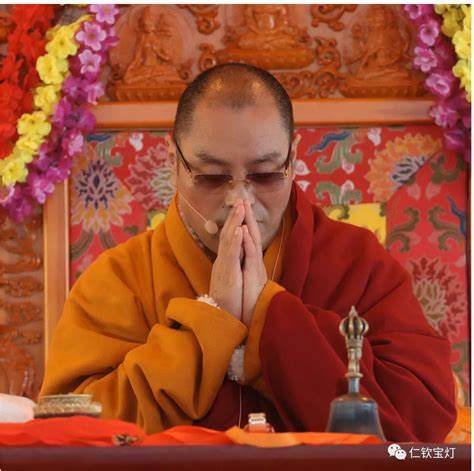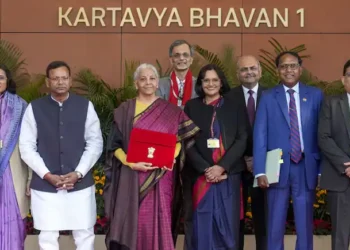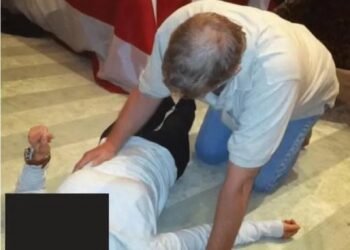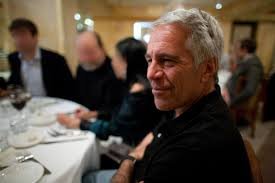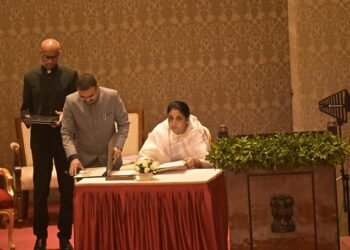The midnight cremation of Rinpoche’s remains in Vietnam, without his family’s presence, has sparked international outrage. Activists call it a calculated cover-up and demand an independent investigation into his suspicious death in custody.
BY PC Bureau
Global Tibetan advocacy organizations have strongly condemned the secretive cremation of Tulku Hungkar Dorje Rinpoche—an esteemed Tibetan spiritual leader—without his family’s consent. Rinpoche reportedly died under suspicious circumstances while in custody in Ho Chi Minh City, Vietnam, in late March.
Despite repeated requests from his family and Tibetan organizations, Vietnamese authorities—reportedly acting under pressure from China—cremated his body in the early hours of April 20. The cremation was carried out without the family’s presence or approval, raising alarm among human rights groups and escalating concerns of state collusion.
Tibetan groups have denounced the act as a grave violation of international law and a deliberate obstruction of justice. They assert that the cremation was intended to destroy potential evidence linked to Rinpoche’s death, which they believe to be politically motivated.
According to a report by Free Tibet, Tibetan organizations around the world are calling for an urgent, independent international investigation into the events leading up to Rinpoche’s detention, death, and cremation.
hadon Tethong of the Tibet Action Institute stated that Tulku Hungkar Dorje was targeted for his unwavering dedication to preserving the Tibetan language and culture, and that his death is part of a broader, disturbing trend of state-led repression in regions like Golog, which have long resisted Chinese rule. She added that the unauthorized cremation appears to be a calculated effort to eliminate evidence and insisted that the international community must demand answers.
ALSO READ: Myanmar: Monk Among 50 Killed in Military Junta Bombing
Dr. Zoe Bedford of the Australia Tibet Council echoed similar concerns, saying that the midnight cremation, conducted under heavy security and without the family’s knowledge, reeks of a cover-up. She noted that reports of monks having their phones confiscated and being barred from communication strongly suggest coercion, and emphasized that this wasn’t a sacred rite but an attempt to erase the truth.
Ju Tenkyong of the Amnye Machen Institute warned that monks who traveled to Vietnam to retrieve Rinpoche’s remains now face grave danger, and pointed out that in Tibet’s Lung Ngon Monastery, even sharing information has been criminalized. He stressed that the secrecy and intimidation surrounding the cremation suggest a systematic effort to conceal the cause of death—and to eliminate crucial evidence.
Tenzin Yangzom of the International Tibet Network stated that this is not just a cultural violation but an act of erasure, and argued that by forcibly cremating Rinpoche without his family’s consent, the Chinese and Vietnamese authorities have denied an entire community their right to truth and justice. She urged world leaders to hold both governments accountable.
ALSO READ: In Martyrs Park, A Daughter Mourns: The Heartrending Tale of Manipur’s Ethnic Divide
Tenzin Rabga of Free Tibet added that cremating Tulku Hungkar Dorje in secret is a shocking breach of Tibetan customs and international norms, saying that it eliminates any chance of a credible investigation and reinforces the urgent need for global scrutiny.
Topjor Tsultrim from Students for a Free Tibet reflected on Rinpoche’s mission, noting that before his death, Rinpoche championed the Tibetan language as the key to cultural survival. He argued that the fact even this peaceful act has become a reason for persecution reveals the dire state of Tibetan freedoms, and insisted that the world must confront this injustice.
Gloria Montgomery from the Tibet Justice Center concluded that if the Chinese and Vietnamese governments have nothing to hide, they should welcome a transparent UN-led inquiry. Instead, she said, the unauthorized cremation only deepens suspicion, and warned that this is rapidly becoming one of the most disturbing examples of suspected extra-judicial killing and transnational repression in recent years.
Suspicious Circumstances and Fallout
Tulku Hungkar Dorje, 56, had sought refuge in Vietnam after years of persecution by Chinese authorities for his vocal defense of Tibetan cultural rights. Sources confirm he was detained on March 25 in Ho Chi Minh City during a joint operation involving Vietnamese police and Chinese agents. He died shortly afterward while still in custody.
Vietnamese authorities claim Rinpoche died of a heart attack, but the lack of an official autopsy, denial of family access, and hasty cremation have fueled widespread skepticism.
In Tibet’s Golog region, where Rinpoche’s monastery is located, the situation has worsened. Following news of his death, authorities have tightened surveillance, imposed movement restrictions, and threatened the closure of his monastery. Eyewitness accounts report a harsh crackdown on monks and laypeople alike, raising urgent concerns for their safety.
Tibetan advocacy groups are calling on foreign governments to pressure both Vietnam and China for full transparency. They are also urging the United Nations to launch an independent investigation into what they describe as a potential extra-judicial execution and to hold those responsible accountable.
ALSO READ: Special Story: Timber Smuggling in Manipur: Assam Rifles Crackdown Exposes Deep-Rooted Illicit Trade



